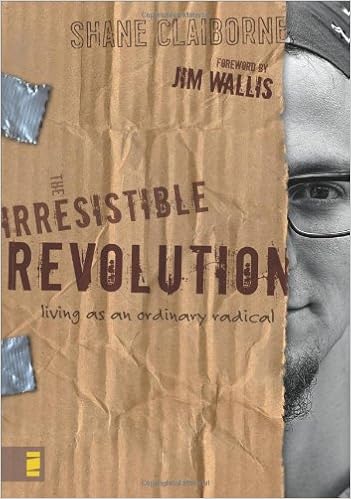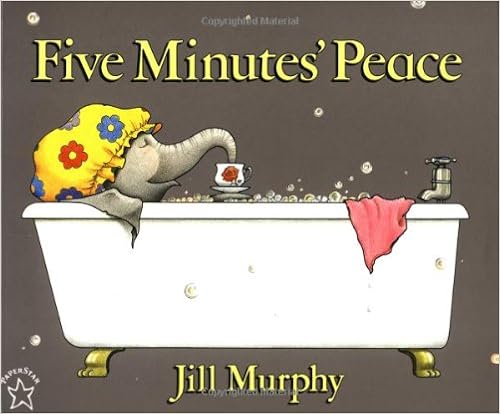John 6:51-58, 12th Sunday after Pentecost B, August 16, 2015
Grace and peace be unto you from God our Father and our Lord and Savior Jesus Christ, Amen.
Ms. Giovanazzi’s fifth grade class was learning about the Civil War. As a final project, she assigned the class together to create a living history demonstration. Each group of students was assigned an aspect of the war - from how they camped in the field to how they created hospitals. Each student was expected to make a Civil War uniform to dress the part. Then parents and younger siblings would be able to walk through the demos.
My group demonstrated what Civil War soldiers ate while in their encampment. My job specifically was to make hardtack, those bland crackers that seem to last forever. So, the night before my presentation, my father and I pulled out some baking supplies. We gathered a bowl, a sheet tray, a rolling pin, and flour.
In the bowl, we mixed lots of flour with just a small amount of water to make the dough. That was it: no oil, no salt, no eggs; just flour and water. Then we rolled it out, divided it into biscuits, and baked it until it was truly hard. That was some bland bread.
And that is about the extent of my bread baking experience. Sure, I have made unleavened communion bread before, and I certainly have made my share of cookies and other baked goods. Yet I have never made leavened bread. I always have feared making leavened bread because it looks so complicated and time consuming. The dough needs to be kept in a place that is warm but not too warm and left for a time that is long but not too long.
I recently listened to a TED Talk where the baker Peter Reinhart described the bread making process in twelve steps. Twelve steps that take hours - if not days - to complete. No wonder bread making sounds so complicated!
The TED speaker reminded me of one more reason why making leavened bread scares me - because it is alive. Bread dough is literally alive, or at least the yeast is. As the yeast burps and sweats, the dough rises. As the dough proofs, it proves that it is in fact alive. Then, when the bread is put into the oven, the yeast dies.
That is the crazy thing about bread. It goes from living to dead to living to dead to giving life. With the process of creating bread, we find the perfect metaphor for Christ. Peter Reinhart divides bread making into three transformations.
First, from alive to dead. Bread begins as living wheat flourishing in the field. Yet the wheat must be harvested, or killed, before its seeds can be crushed into flour.
In his TED Talk, Peter said, “And at that point, the wheat has suffered the ultimate indignity. It's not only been killed, but it's been denied any potential for creating future life.” The wheat cannot produce more wheat, yet it has become flour.
So also, Jesus begins his ministry alive and well flourishing in Israel. His teaching, preaching, and healing are important, yet before he can become the true living bread, he must be killed and his body crushed. Unlike the wheat, though, Jesus’ potential for future life does not die when he breathes his last.
The second transformation is from dead to alive. The flour is dead wheat, yet when yeast is mixed in, the dough becomes alive again. The proof is when the dough rises. All of those “yeast burps, sweats, and starch guts” show how alive the dough really is.
Peter Reinhart said, “[The word] Leaven comes from the root word that means enliven -- to vivify, to bring to life… And we know it's alive because… it grows. Growth is the proof of life.” While the dough is growing, it is transforming more. The enzymes produce sugar; the yeast turns the sugar into carbon dioxide and alcohol; and the bacteria turns sugar into acid.
So also, Jesus becomes alive again after dying on the cross. After three days, the Lord raised Jesus from the dead. And, just as the living dough is much different from the living wheat, Jesus is different now too. Jesus’ body has changed. Now resurrected and on earth, Jesus can walk through walls yet still eat fish. Jesus now can do things and know things that he couldn’t before.
Third, the living dough is transformed into dead bread. In the oven, the yeast dies when it reaches 140 degrees. The yeast must die before the bread can be complete. Peter Reinhart said, “The yeast, whose mission it has been up till now to raise the dough, to enliven it, to vivify it, in order to complete its mission, [it] has to give up its life.” http://www.ted.com/talks/peter_reinhart_on_bread/transcript?language=en
Yet it is the finished bread, with the wheat and the yeast dead, that is finally food. The bread is what sustains people until the next meal. Wheat or yeast alone could not do this.
Jesus does not die again like the bread does. Jesus is changed once more, though. Jesus is reunited with the Lord in heaven now that his mission on earth is complete. Jesus is not dead, yet he also is no longer physically with us.
The Lord has transformed Jesus from life to death, from death to new life, and finally from new life to everlasting life. Jesus said, “I am the living bread that came down from heaven. Whoever eats of this bread will live forever; and the bread that I will give for the life of the world is my flesh.” (John 6:51)
All of the bread that we can make in the world, including that hardtack from the Civil War, is dead. The wheat is ground into flour, and the yeast is killed in the oven. Even the manna in the wilderness was dead. But Jesus is the living bread. Not even death itself can kill Jesus.
Now Jesus is offering this living bread to us. Not just in communion, but in every way, Jesus offers his flesh to give us life everlasting. Jesus offers his flesh and blood as real food and drink, but not physical food and drink. Hardtack may be able to survive for years if stored properly, but only Jesus the living bread can survive forever.
With Jesus’ flesh and blood, we never need to hunger for God again. We experience this food and drink not just in communion but also when Jesus abides in us. Jesus is with us, sustaining us through our deepest darkness and encouraging us through our greatest joys.
Living bread is the best metaphor to understand who Jesus is and what he gives to us. Yet Jesus himself is the best gift of all. After all of this bread talk, aren’t you hungry for communion? Amen.











